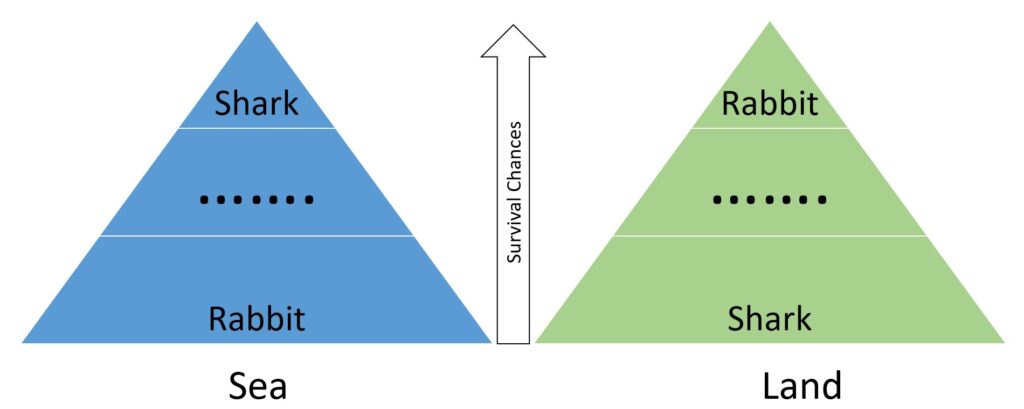Evolutionary thinking in business can be a fascinating topic. A key thing to bear in mind is that business evolution is a little different from biological evolution. Market competition is not the same as competition in nature. This is, not least, because business has much more rapid timeframes. Business changes regularly. On the other hand, biological evolution usually requires generational change to drive its effects. Similar concepts exist in both business and biology. For example, selection pressure and changing populations over time. Still, there is no reason why the evolutionary processes in business and nature should be the same.
Garbled Strategy Advice
A recent piece I wrote with Mark Vandenbosch (then an Ivey colleague/interim Dean) and Ranjan Banerjee (then Dean of the S P Jain Institute of Management and Research in Mumbai) examined business evolution. We sought to uncover “garbled strategic advice created by misinterpretations of evolutionary theory” (Vandenbosch, Bendle and Banerjee, 2019).
We found plenty of bad advice based in a loose understanding of evolution.
“… when used to illuminate business strategy, many evolutionary concepts are misapplied. If truth be told, marketplace competition doesn’t ensure that only the strongest survive any more than evolutionary pressures force anyone to be selfish.”
Vandenbosch, Bendle and Banerjee, 2019.
Three bad Ideas
The three erroneous ideas we specifically critiqued are:
- Profit-maximization strategies inevitably lead to the best outcomes. This is incorrect. They don’t because selection, even if this is based upon profits, is on outcomes. Selection is not on the intention behind the strategy. Strategies not specifically aimed at profit maximization can often make more profit than those aimed at profit maximization. It all depends on the right interactions in the market. Those making more money can care more about fairness. On the other hand, those making the most money may be more competitive. They might want to win at all costs and do better than those aiming to maximize profits. Who does what depends upon the precise context.
- Business is survival of the fittest. This is incorrect as the ideal of fitness doesn’t exist.“You can’t assess whether a rabbit is fitter than a shark without knowing whether the creatures are on land or sea—which is why the popular misunderstanding of evolution, survival of the fittest, is conceptually wrong.” (Vandenbosch, Bendle and Banerjee, 2019). You can only be fit in a specific context. (And these contexts constantly change). At best it can be ‘survival of the best fitted’ to the current environment.
- Specialization makes you stronger. Often specialization makes you weaker in the sense of being more vulnerable to changes in your environment. Having a bit of redundant capacity can be good if it allows you to react positively to changes.

Evolutionary Thinking in Business
Evolutionary ideas can be useful. They don’t need to perfectly mimic biological findings. Be careful. Many of the most common evolutionary ideas used in business don’t make a lot of sense.
For more on evolutionary thinking in strategy see here.
Read: Mark Vandenbosch, Neil Bendle, and Ranjan Banerjee (2019) Survival of the Best Fitted, Ivey Business Journal, March/April, https://iveybusinessjournal.com/survival-of-the-best-fitted/
